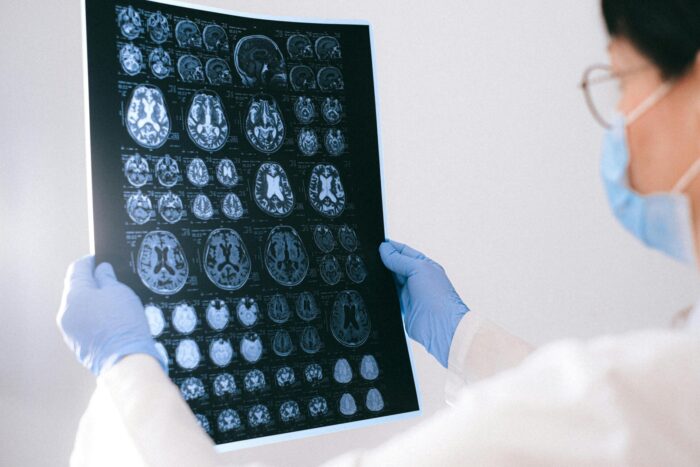
By Maria Popova
“A purely disembodied human emotion is a nonentity,” William James asserted in his revolutionary 1884 theory of how our bodies affect our feelings. Two generations later, Rilke wrote in a beautiful letter of advice to a young woman: “I am not one of those who neglect the body in order to make of it a sacrificial offering for the soul, since my soul would thoroughly dislike being served in such a fashion.” And yet in the century since, we’ve made little progress on making sense — much less making use — of the inextricable dialogue between the physical body and the psychoemotional interior landscape we shorthand as “soul.”
Nowhere is this relationship more essential yet more endangered than in our healing from trauma, and no one has provided a more illuminating, sympathetic, and constructive approach to such healing than Boston-based Dutch psychiatrist and pioneering PTSD researcher Bessel van der Kolk. In The Body Keeps the Score: Brain, Mind, and Body in the Healing of Trauma (public library), he explores “the extreme disconnection from the body that so many people with histories of trauma and neglect experience” and the most fertile paths to recovery by drawing on his own work and a wealth of other research in three main areas of study: neuroscience, which deals with how mental processes function within the brain…
Share This Post!
Child-Parent Psychotherapy Resources
By University of California, San Francisco Child-Parent Psychotherapy (CPP) is an intervention model for children aged 0-5 who have experienced at least one traumatic event (e.g. maltreatment, the sudden or traumatic [...]
Caring for Caregivers Experiencing Secondary Trauma
By Heather C. Forkey, MD, Elaine Schulte, MD, MPH, and Luanne Thorndyke, MD Secondary traumatic stress (STS) is the emotional duress caused by indirect exposure to distressing events experienced by others. [...]
How to Talk About Mental Health
By SAMHSA Mental health is essential to a person’s life in the same way as physical health. Hesitation to talk about mental health adds to the notion that the topic is [...]
Prioritizing Minority Mental Health
By CDC Office of Health Equity Mental health matters! Mental health includes our emotional, psychological, and social well-being. It affects how we think, feel, act, handle stress, relate to others, and make [...]
Exploratory Study Associates Childhood Trauma with Brain Features in Abusive Mothers
By University of Fukui As sad as it is, child maltreatment continues to be a prevalent global social issue. Recent studies have revealed that up to one billion children aged 2 [...]
SAMHSA Recognizes Posttraumatic Stress Disorder Awareness Month
By Stacey Owens, M.S.W., LCSW-C, Military and Veterans Affairs Liaison, Center for Mental Health Services Although often associated with combat veterans, Posttraumatic Stress Disorder (PTSD) is a mental health condition that [...]







